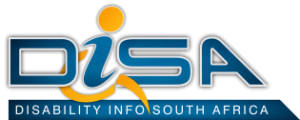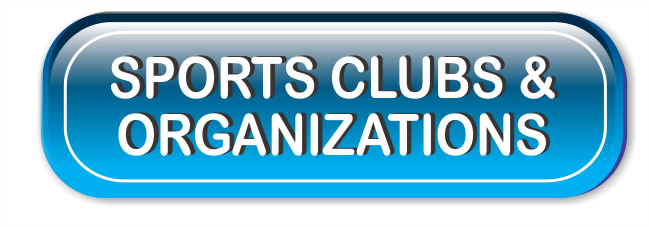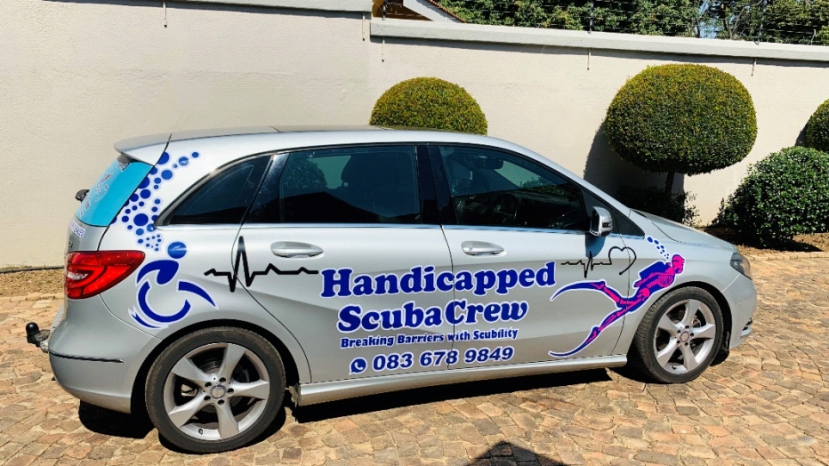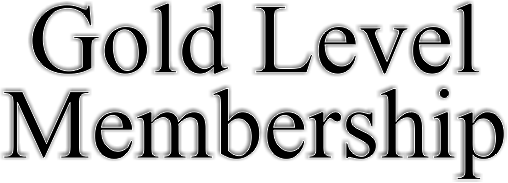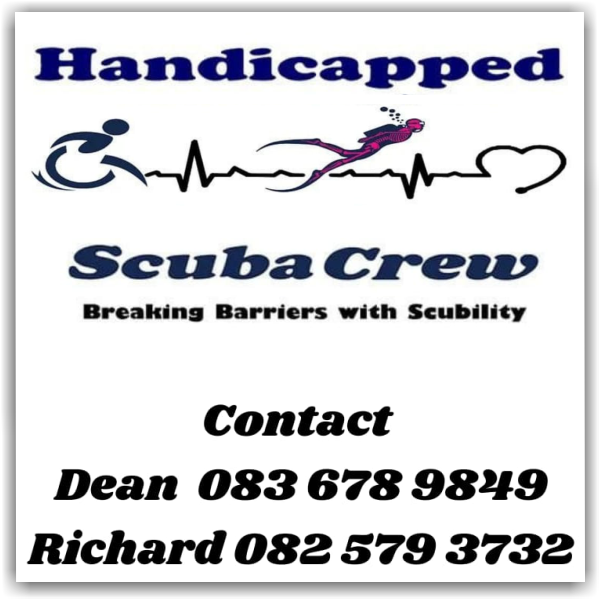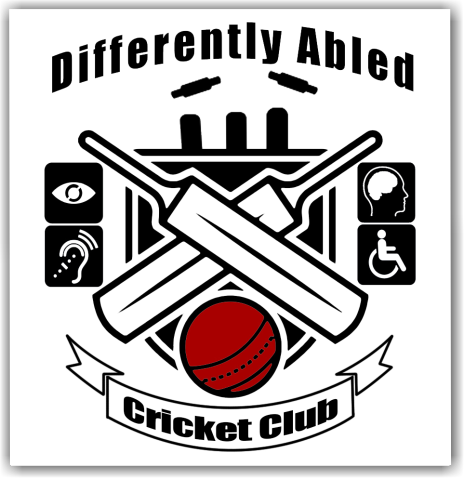Sports for Intellectually Impaired
To view the sports organizations & clubs, click the button to the right.
Contents: To jump to the topic you would like, click on the links below
Introduction
Many persons with Intellectual Impairments can part and benefit from physical activities such as Sports and Hobbies, these benefits include improved mental and emotional well-being especially in preventing and alleviating depression, anxiety and coping with stress; increased social networks and relationships; enhanced cognitive functioning and learning. Lack of physical activity increases the risk of many medical problems including heart disease, diabetes, obesity, and poor bone quality. Studies suggest that persons with an intellectual disability, when compared to the rest of the population, have decreased cardiovascular fitness and strength. Those watching from the sidelines can be inspired by the achievements and so strive to achieve more, this also helps society to learn about Intellectual Impairments and to remove some of the stigma associated with a person having an Intellectual disability.
There are a wide variety of different types of sports and activities that are available in South Africa, whatever your age, disability, experience level, or gender, there is a place for you in Impaired sports. Whether you prefer team or individual sports, Winter or Summer sports, high action or something a bit slower, If you've got the enthusiasm and the drive, you can find something in this section that will suit you. Sports for persons with disabilities help society to learn about disability and help remove some of the stigma associated with having a disability. Sports that can benefit persons with Intellectual Impairments that are listed on this page include: Scuba Diving, Athletics, Swimming, Basketball, Netball, Cricket, Soccer, Golf, Ten-Pin-Bowling, Martial Arts, Judo, Tennis, Table Tennis, etc.
At the top level, the IPC primarily serves athletes with physical disabilities, but the disability group Intellectual Disability has been added to some Paralympic Games. This includes only elite athletes with intellectual disabilities diagnosed before the age of 18 with a significant impairment in intellectual functioning and associated limitations in adaptive behavior. These athletes worldwide have been successfully reintegrated into Paralympic Sport. To achieve qualification, they will compete in Athletics (Class T/F20), Swimming (Class S14) and Table Tennis (Class 11). The IOC- recognized Special Olympics World Games are open to all people with intellectual disabilities.
International Paralympic Committee (IPC) & Paralympics Games
Paralympics welcomes athletes from six main disability categories: amputee, cerebral palsy, intellectual disability, visually impaired, spinal injuries and Les Autres (French for "the others", a category that includes conditions that do not fall into the categories mentioned above). For a time, athletes with intellectual disabilities were excluded from the Paralympic Games after a cheating scandal at the 2000 Summer Paralympics, where a number of athletes participating in intellectual disability events were revealed to not be disabled, INAS-FID athletes were banned from Paralympics competition, but the ban on intellectually disabled athletes has since been lifted, but the number of events for people with intellectual disabilities are far less than other disabilities.
Competitors at elite level competitions, are classified by disability, to arrange athletes with a similar disability in the same event. T/F20 Athletes who have a recognised intellectual impairment according to international standards as recognised by the World Health Organisation i.e. IQ testing of 75 and below. The disability category determines who athletes compete against and which sports they participate in. Events in the Paralympics are commonly labelled with the relevant disability category, S14 such as Swimming for Intellectually Impaired, or Ladies Table Tennis 11, indicating athletes with an intellectual disability.
Globally, the International Paralympic Committee is recognized as the leading organization, with direct governance of nine sports, and responsibility over the Paralympic Games and other multi-sport, multi-disability events. Other international organizations, notably the International Sports Federation for Persons with Intellectual Disability (INAS) and the Cerebral Palsy International Sports and Recreation Association (CP-ISRA) govern some sports that are specific to certain disability groups.
In addition, certain single-sport federations govern sports for athletes with a disability, either as part of an able-bodied sports federation such as the International Federation for Equestrian Sports (FEI).
At the national level, there are a wide range of organizations that take responsibility for Paralympic sport, including National Paralympic Committees, which are members of the IPC, and many others.
International Sports Federation for Persons with Intellectual Disability (INAS-FID)
In 1986, the International Sports Federation for Persons with Intellectual Disability (INAS-FID) was formed to support elite competition for athletes with intellectual disabilities. This was established in contrast to the more participative, "sport for all" approach of Special Olympics.
The International Federation for Athletes with Intellectual Impairments (INAS) helps more than 300,000 of the world’s best athletes compete in a variety of winter and summer sports. These include tennis, basketball, cycling, cricket, and alpine skiing. INAS promote inclusion of people with intellectual impairments in society and are a member of the International Paralympic Committee. Part of their work involves educating members on eligibility and classification so that they can develop their athlete pool.
INAS organises competitions such as world and regional Championships and also manage eligibility and classification, working with other International Federations organisations to develop sports such as taekwondo and equestrian, with an aim to grow the number of athletes and competitions.
Special Olympics
The Special Olympics World Games are held every two years, alternating with Summer and Winter Games. In addition to the World Games, Special Olympics holds competitions at the local, state/province, country, region and world level every year. In all, more than 70,000 Special Olympics competitions are held every year and South Africa takes part in this.
To be eligible to participate in Special Olympics, you must be at least 8 years old and identified by an agency or professional as having one of the following conditions:
- intellectual disabilities
- cognitive delays as measured by formal assessment
- significant learning or vocational problems due to cognitive delay that require or have required specially designed instruction
The Special Olympics Young Athletes™ program was created for children with intellectual disabilities - ages 2 through 7.
Since 1968, Special Olympics has been spreading the message that people with intellectual disabilities can and will succeed when given the opportunity. Special Olympics is the leading voice in raising awareness about the abilities of people with intellectual disabilities. Through the power of sports, people with intellectual disabilities discover new strengths and abilities, skills and success. Athletes find joy, confidence and fulfillment on the playing field and in life. They also inspire people in their communities and elsewhere to open their hearts to a wider world of human talents and potential. There are up to 200 million people with intellectual disabilities around the world. Special Olympics attempts to reach out to every one of them, as well as their families and communities. They do this through a wide range of trainings, competitions, health screenings and fund-raising events. They also create opportunities for families, community members, local leaders, businesses, law enforcement, celebrities, dignitaries and others to band together to change attitudes and support athletes.
Special Olympics is also the world's largest public health organization for people with intellectual disabilities. They offer a wide range of free health exams and care to athletes with neglected health problems. Their goal is to bring better fitness, nutrition and healthier lifestyles to everyone involved in Special Olympics -- from athletes and their families, to coaches and volunteers.
Special Olympics attitude research shows that the majority of people worldwide underestimate the abilities of people with intellectual disabilities. There research also shows that their capabilities far exceed their expectations. With this knowledge in hand, we are opening doors for greater opportunities for them in education, health care and employment.
Special Olympics leads the world in researching and addressing the concerns of people with intellectual disabilities. We identify the pressing issues facing this group, and reach out to the highest leaders in government, health care, education, the nonprofit sector and business to influence policy and to bring valuable services to those in need.
Sports is a powerful force. It can shift the focus from disability to ability, from isolation to involvement, they offer the highest quality Olympic-style sports training and competition for people with intellectual disabilities all around the world. This changes attitudes and changes lives. The transformative power of sports to instill confidence, improve health and inspire a sense of competition is at the core of what Special Olympics does. From the detailed coaching guides we provide in many languages to the sharp-eyed officials at our international games, the focus is on real sports, real competition, real achievements.
Inclusion
Beginning in the late 1980s and early 1990s, work began within several countries and organizations to include athletes with disabilities in the able-bodied sport system. This included adding events for athletes with disabilities to major games such as the Olympic Games and the Commonwealth Games, and integration of these athletes into able-bodied sports organizations. Since 1984, the Olympics have included exhibition events for Paralympic athletes, recently disabled athletes have competed in full medal events.
Unified sports
"Unified sports" involve teams made up of athletes with and without disabilities. Since the 1990s, Special Olympics Unified Sports have been promoting social inclusion through shared sports training and competition. This initiative has expanded globally and now involves more than 700,000 players in 127 countries worldwide. The principle behind Unified Sports is simple: training together and playing together is a quick path to friendship and understanding. An example of this is "The NBA Cares Special Olympics Unified Basketball Game" during the NBA All-Star Weekend.
The Walt Disney Company, ESPN and Special Olympics are also working on a two-year global initiative that will leverage the power of sports to promote an environment of social inclusion and acceptance.
Classification
A major component of Paralympic sport is classification. Classification provides a structure for competition which allows athletes to compete against others with similar disabilities or similar levels of physical function. It is similar in aim to the weight classes or age categories used in some non-disabled sports.
Athletes are classified through a variety of processes that depend on their disability group and the sport they are participating in. Evaluation may include a physical or medical examination, a technical evaluation of how the athlete performs certain sport-related physical functions, and observation in and out of competition. Each sport has its own specific classification system which forms part of the rules of the sport.
Special Olympics South Africa
Special Olympics South Africa is home to more than 45 000 talented athletes trained in 18 competitive sports. "We provide year-round training for men, women and children with intellectual disabilities. Our goal is to transform their lives through the joy of sport, and to transform the lives of their families and communities. The global mission of Special Olympics is to provide year-round sports training and athletic competition in a variety of Olympic-type sports for children and adults with intellectual disabilities. We provide continuing opportunities to develop physical fitness, demonstrate courage, experience joy and participate in a sharing of gifts, skills and friendship with families, other Special Olympics athletes and the community."
The South African Sports Confederation and Olympic Committee (SASCOC)
The South African Sports Confederation and Olympic Committee (SASCOC) is the National Olympic Committee (NOC) and National Paralympic Committee (NPC) for South Africa, and are the responsible body for South Africa at the Commonwealth Games. SASCOC is also responsible for high-performance sport in the country and coordinates the relationship with various international sports federations. They not only help look after all our various National Federations who are affiliated to them, but are also responsible for awarding National Protea Colours to athletes who have met the criteria to represent South Africa in different sporting codes, including:
Athletics, Swimming /Aquatics, Waterpolo, Archery, Badminton, Baseball, Basketball, Boxing, Canoeing, Cycling, Equestrian, Fencing, Football, Gymnastics, Handball, Hockey, Judo, Karate, Modern Pentathlon, Netball, Rowing, Rugby 7s, Sailing, Shooting, Table Tennis, Taekwondo, Tennis, Triathlon, Volleyball, Weightlifting and Wrestling. Not all of these sports are however available for all persons with Intellectual Impairments.
Provincial Sports Associations, Organisations & Sports Clubs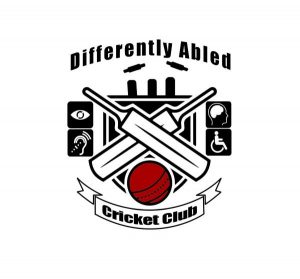
There are various Provincial Sports Associations & Sports Clubs that are also available, which offer either a single or a variety of sports in a particular province or city in South Africa, these Provincial Sports Associations & clubs may include "Disabled" and Abled Body athletes or just "Disabled" athletes, they include:
The Differently Abled Cricket Club: which is an open cricket club for the differently abled cricket players, which includes the Blind, Deaf, Intellectually Impaired (SID and MID) and Physically Disabled. We are the only club of this kind in South Africa and we would like to make it our goal in getting other regions to follow suit!
In South Africa organisations such as the Handicapped Scuba Crew promote and offer Scuba 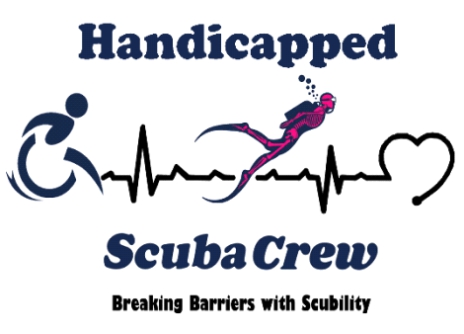 Diving for persons with disabilities, as both an activity and a form of therapy, thus improving the lives of many persons with disabilities throughout South Africa and promoting Scuba Diving for persons with disabilities.
Diving for persons with disabilities, as both an activity and a form of therapy, thus improving the lives of many persons with disabilities throughout South Africa and promoting Scuba Diving for persons with disabilities.
Handicapped Scuba Crew: Handicapped Scuba Crew is a Nonprofit Organization (Registration No: NPO 240/281) which is based in Pretoria and has a mission to break down barriers with “Scubility” – “We Use SCUBA as a tool for rehabilitation back into normal society and to make sure that persons with disabilities are given the same opportunities to receive excellent quality training, certification and dive adventures, as able-bodied divers do. We enhance the lives of all persons with disabilities and their families through the sport of SCUBA Diving. - We raise funds for all of these activities.”
In 2019 the Handicapped Scuba Crew completed more than 400 Sea Dives (Veneus include: Sodwana Bay; Aliwal Shoal; Ponta do Ouro Mozambique and the Red Sea); more than 1000 Pool Sessions and more than 40 x courses.
Handicapped Scuba Crew have worked with persons with various disabilities/conditions, including persons with mobility impairments or conditions. Persons who have dived with us include Persons with Spinal Cord Injuries - paraplegics and quadriplegics; Persons with Cerebral Palsy and Multiple Sclerosis; Amputees and persons with Spina Bifida; Hemiplegics and Persons with Muscular Dystrophy; Persons who have had a Stroke and Persons with Cancer; persons who are Deaf; Autistic; Blind, or have Down Syndrome; PTSD and TBI.
Adaptive techniques enable our organization to live our ethos of everyone is equal, giving people as above an equal opportunity to experience all parts of the dives, including sitting on the pontoon if viable! The benefits of Scuba Diving are vast and include both mental and physical benefits. New medical studies confirm the therapeutic benefits of Scuba Diving and the Handicapped Scuba Crew have been recognised for the work that they are doing and the benefits of Scuba Diving for persons with disabilities.
If you are interested in Scuba Diving, or would like to find out more about the Handicapped Scuba Crew or various events planned, please feel free to contact: Dean on: 083 6789 849 or via email: dean@scubacrew.co.za; Richard on: 082 579 3732 or via email: info@scubacrew.co.za or Sue on: 064 545 1671 or via email: sue@scubacrew.co.za.
You can also visit the Handicapped Scuba Crew: Facebook Page or click on the Link below to find out more about Scuba Diving for persons with disabilities and the Handicapped Scuba Crew.
Types of Sports Appropriate For My Disability
Athletes with Intellectual Impairments are able to compete in most sports and activities without significant restrictions, the sports and their rules are identical to normal sports, and there are no special sports, but there may be slight adaptations in certain sports. Persons with Intellectual Impairments can therefor take part and benefit from most Sports, Hobbies and other physical activities. These activities are a good way to increase the social skills, gain physical agility as well as confidence, and understand social situations. Within each movement, different sports are practised at different levels, many sports are practiced by persons with disabilities outside the formal sports movements.
Below are a list of a few sports that are available to persons with Intellectually Impairments in South Africa, some of these sports are available at social, club & Provincial level, while some are available at the Paralympics & Special Olympics, where the classification process is used. To view all the sports listed, view the buttons on the left or click on the links below:
Athletics & Swimming
Both Athletics & Swimming are available to individuals with Intellectually Impairments in South Africa. These sports are competed in at social, club & Provincial level, as well as at the Paralympics & Special Olympics, where the classification process is used. Athletes who compete in these sports are classified thanks to the classification system.
Basketball & Netball
Basketball & Netball are both sports which are played by individuals in teams on courts, which are especially mapped out to the specific sizes & dimensions that the sport requires. They also both use hoops and ball. sport. These sports are played at social, club & Provincial level, as well as at the Special Olympics, where the classification process is used.
Cricket & Soccer
Both Cricket & Soccer are available to be enjoyed by persons with Intellectual Impairments, including persons with Learning Disabilities in South Africa at Club, Provincial and International level. Both these sports are played by individuals who make up a teams and are therefore very beneficial, as they are physical activities and are a good way to increase the verbal, social, and mobility skills of children and adults with Intellectual Impairments, as well as improving confidence.
International Learning Disability Sport is overseen by the world governing body of Learning Disability Sport, INAS-FID. INAS rules state that to play sport as an athlete with a Learning Disability you must be able to demonstrate that you have an IQ of 75 or less
Golf & Ten-Pin Bowling
Golf & Ten-pin Bowling or "Bowling" are both competitive sports, which can be played by individuals against each other or in teams despite an Intellectual Impairment.
Although Bowling & Golf do not belong to the Paralympics Games, they are among the most popular sports in the Special Olympics. They are both particularly beneficial sports irrespective of your age or sports abilities, as they both ensure physical exercise and at the same time participation and social integration. Plus, they great fun! Both sports are played at social, club & Provincial level, as well as at International level.
Martial Arts & Judo
Both Martial Arts and Judo are available for individuals with Intellectually Impairment's. Both sports are competed in at social, club & Provincial level, as well as at International level. These sports are not only a source of fun, but great exercise, a challenge, teachers discipline, & is a great way to meet new people.
Paragliding
Paragliding is the recreational and competitive adventure sport of flying paragliders. The pilot sits in a harness suspended below a fabric wing comprising a large number of interconnected baffled cells. Wing shape is maintained by the suspension lines, the pressure of air entering vents in the front of the wing, and the aerodynamic forces of the air flowing over the outside.
Despite not using an engine, a paragliders flight can last many hours and cover many hundreds of kilometers, though flights of one to two hours and covering some tens of kilometers are more the norm. By skillful exploitation of sources of lift, the pilot may gain height, often climbing to altitudes of a few thousand meters. Paragliding takes allot of skill and hours of practice, but this does not mean that you can't enjoy the thrill of paragliding even if you have a disability.
Tennis & Table Tennis
Tennis & Table Tennis are both sports that have been adapted from their original sports. Both sports can be played by people with nearly every disability including Intellectual disabilities. Athletes receive classifications, so that they can be grouped for competition purposes according to their impairment. Both sports are played at social, club & Provincial level, as well as at International level.
Scuba Diving
Scuba Diving is a very popular recreational activity for both able bodied persons and persons with disabilities across the world, not to mention in our beautiful waters and climate of South Africa. Scuba Diving provides a wide variety of benefits for persons with impairments and is enjoyed by persons with disabilities/impairments, including persons with various Intellectual Impairments such as persons with Autism, Persons who have Down Syndrome; persons with PTSD or Post-traumatic stress disorder and Traumatic Brain Injury (TBI). Some of these Intellectual Impairments do not affect your ability to Scuba Dive, but certain adaptions may need to be made, including instructions which may need to be given in a different way to ensure that the instructor is understood by everyone. Thanks to organisations in South Africa such as Handicapped Scuba Crew, who are willing and able to make these adaptions to accommodate everyone, so that Scuba Diving can be enjoyed by more people in South Africa and around the world.
The Handicapped Scuba Association also promotes Scuba Diving in other countries around the world, each year they plan Scuba Diving trips to exotic locations led by specially trained Scuba Divers, ensuring that you have a safe and comfortable Scuba Diving experience. Please read the page below to find out more about these two organisations and how Scuba Diving can benefit persons with Intellectual Impairments. Please click on the link below to find out more about Scuba Diving and the clubs and organisations that can assist you and how they can benefit you through these activities and other services that they provide, or read the page below to find out more about other sports and activities in South Africa.
Please send us information on any other sport.
Disclaimer
If you would like to find out more about these & other Sports, Clubs, Organizations or the sports that are available for you, you can visit our Sports Page: http://disabilityinfosa.co.za/search-for-info/sports-clubs-organizations/
Please note that the FREE services and website that we offer is privately run & funded and is not run or funded by the Government or any Organization. We therefore rely on advertising and donations to continue to supply and improve this Free service. The Companies, Clubs, Schools and Organizations that have their logos on this site, have advertised or made donations to the Website and have therefore assisted us be able to continue to offer this free Service. Please support them as they have supported Us and please contact us if you can advertise with us or would like to make a donation!
N.B: This Website is continually changing and being improved some sections may therefor be incomplete or have links and contact details that are outdated. We are making every effort to keep this to a minimum, so we ask for your patients in this regard and to please Contact Us if you notice that your Companies, Clubs, Schools or Organizations details are incorrect or have changed.
Thank you for visiting our website, we hope that it will be helpful, please feel free to visit our Facebook Page to leave a comment.
